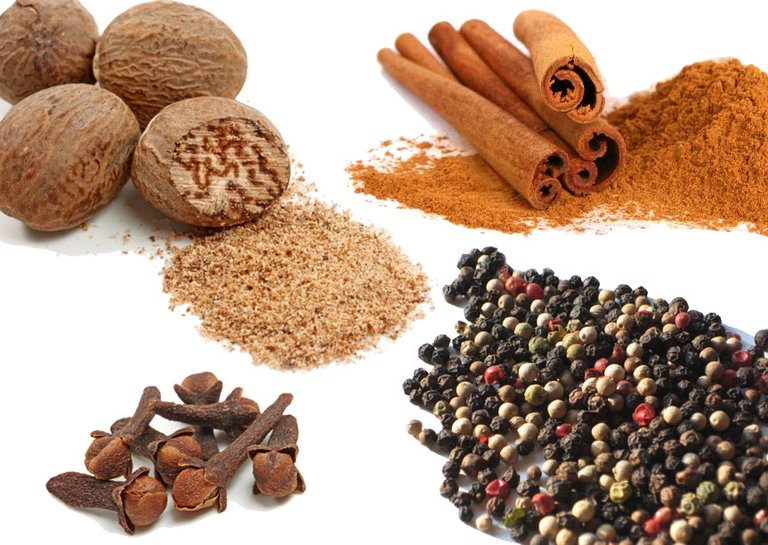
Spice Trade
Between 1498 and 1595 the East Asia spice trade was dominated by the Portuguese. And because of the Dutch-Spanish war the Dutch weren't allowed to set shore on any harbour in Spain or Portugal.
So the Dutch decide to get the spices themself. There were all ready several independent companies doing business in East Asia. But to actually make a decent competition against Spain and the Portuguese, the state decided/ordered in 1602 to melt the individual companies into one company the: The United Dutch East India Company or as we say in Dutch: "de Vereenigde Oost Indische Company" the V.O.C.
Before we go any further let take a look at the definition of a Cartel and let's keep that in mind during this post.
"A cartel is a group of formally independent producers whose goal is to increase their collective profits by means of price fixing, limiting supply, or other restrictive practices. Cartels typically control selling prices, but some are organized to control the prices of purchased inputs"

Although the V.O.C. was 1 company there were 6 chambers. Each chambers had to take care of their own army, ships etc.
- Amsterdam
- Middelburg
- Enkhuizen
- Delft
- Hoorn
- Rotterdam
Amsterdam had 8 representatives Middelburg 4 and the rest 1.
Amsterdam took care of the half of the investment and Middelburg a fourth, The total investment was 6.429. 588 Gulden, compared to to days money that was like $ 100.000.000

Pirates With A Licence To Kill
The state gave permission to build a spice monopoly by any means. And they did. The V.O.C. try to fought everything what could be beneficial for the trade. Can you imagine The Dutch starting a war against China.? I dont..
The first 20 years, almost al of the profits were invested in warships to set shop in Asia. They took over 150-200 ships. As you can imagine that is a lot. Especially in those days. This was not only robbing ships to took their trade. But blocking harbours in whole East Asia everything for a better trade. Unfortunately they didn't spare the locals. If it was needed they suppressed the locals and even killed them. Pirates with a licence to kill and rob sent by the state After 20 years it become more of a business company. Still war was common thing that had to be done in the eyes of the V.O.C. And also among the Dutch were many war victims.
According to historic-us Victor Enhoven the V.O.C. made in the first 20 years 10.million Gulden by robbing ships. If they didn't made that profit. The V.O.C. would probably be bankrupt in the first years.

Stock Market
In stead of investing in one ship. The investors spread the risk. So they investeded small amounts in many ships. This way they didn't lose the whole investment of one ship (in a war battle). Everybody could buy a share. And here a stock market was born.
Price fixing
The V.O.C. backed up by the state was the only one allowed to sell spices in the V.O.C. area. To make sure the locals didn't set shop. They kept the prices high in Asia and cheaper in the Netherlands. This way it was cheaper to buy your spices in The Netherlands then in Asia.

Rise and Fall
These war tactics and (dirty) business strategies resulted in a monopoly when it comes down to the spice trade. Spices back then where like gold now. The V.O.C. grown out to be the first multinational in the world. Primarily they trade in Asia. At their peek of their success they
had 25 000 employees working in East Asia. In the Netherlands there were working about 3000 employees. Many more were indirectly economic involved. Also smuggling was a common thing to make a extra buck to compare their low salary.
"Ultimately maintaining the monopoly cost more then the spices were worth"
Between 1780 and 1784 they suffered a lot from the fourth Anglo Dutch war Trade routes and ships were taken over by the English. That costed much money. And slowly the Dutch were losing their monopoly.And became nationalised by the state, in 1799 the V.O.C. officially ends.
Extra Photos





Source Image 1
Source Info 1, 2
aLL your post is very good!!
I wish always success ston patriwth mou :)
thank you! but Im Dutch.. No problem. Still brothers:)
Solid blog. I was about to start a similair discussion. The current total market cap of all cryptos might seem high but blockchain is here to stay and will involve all our lives. I do see a bright future for everyone that's hold's their coins with a long term vision. I really advice people to take a look at: https://www.coincheckup.com The site is my go to place for crypto investment analaysis and indepth coin research. For example: https://www.coincheckup.com/coins/Gulden#analysis For a complete Gulden Detailed report